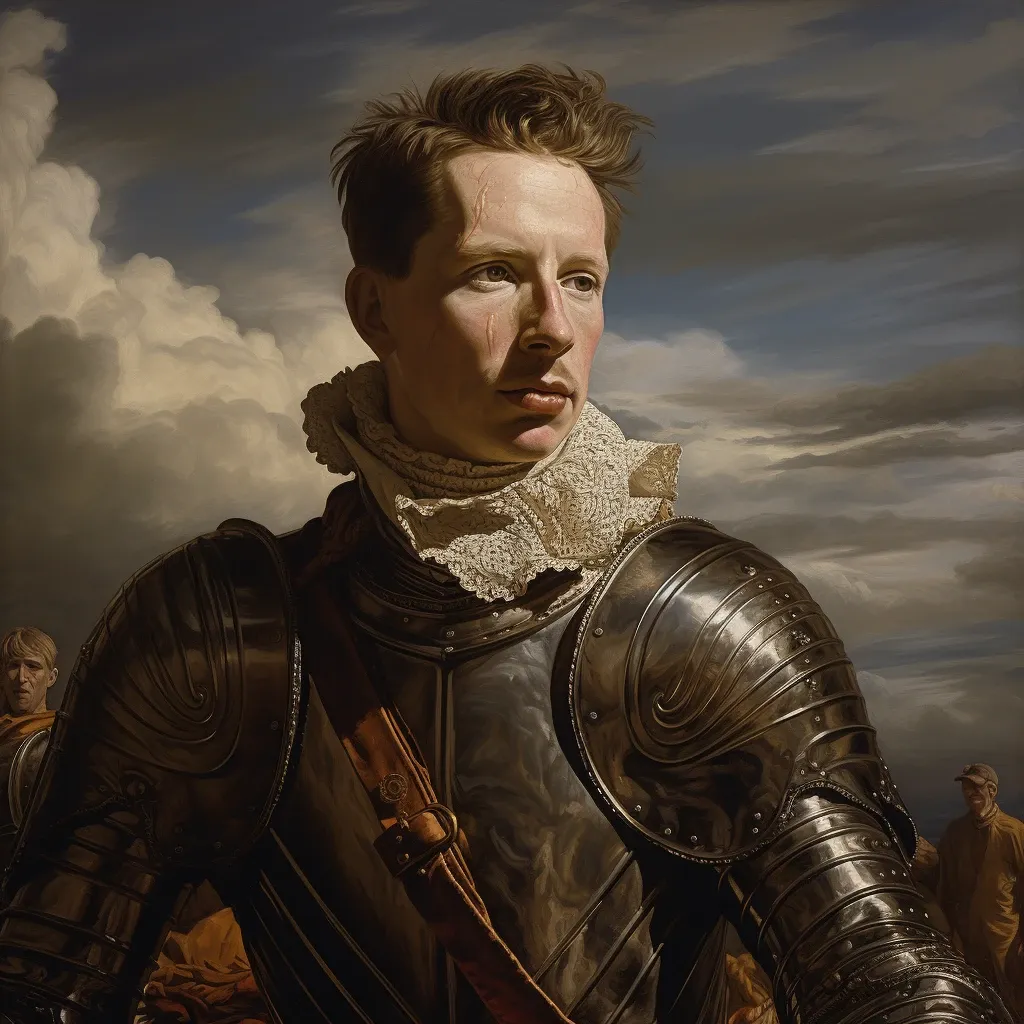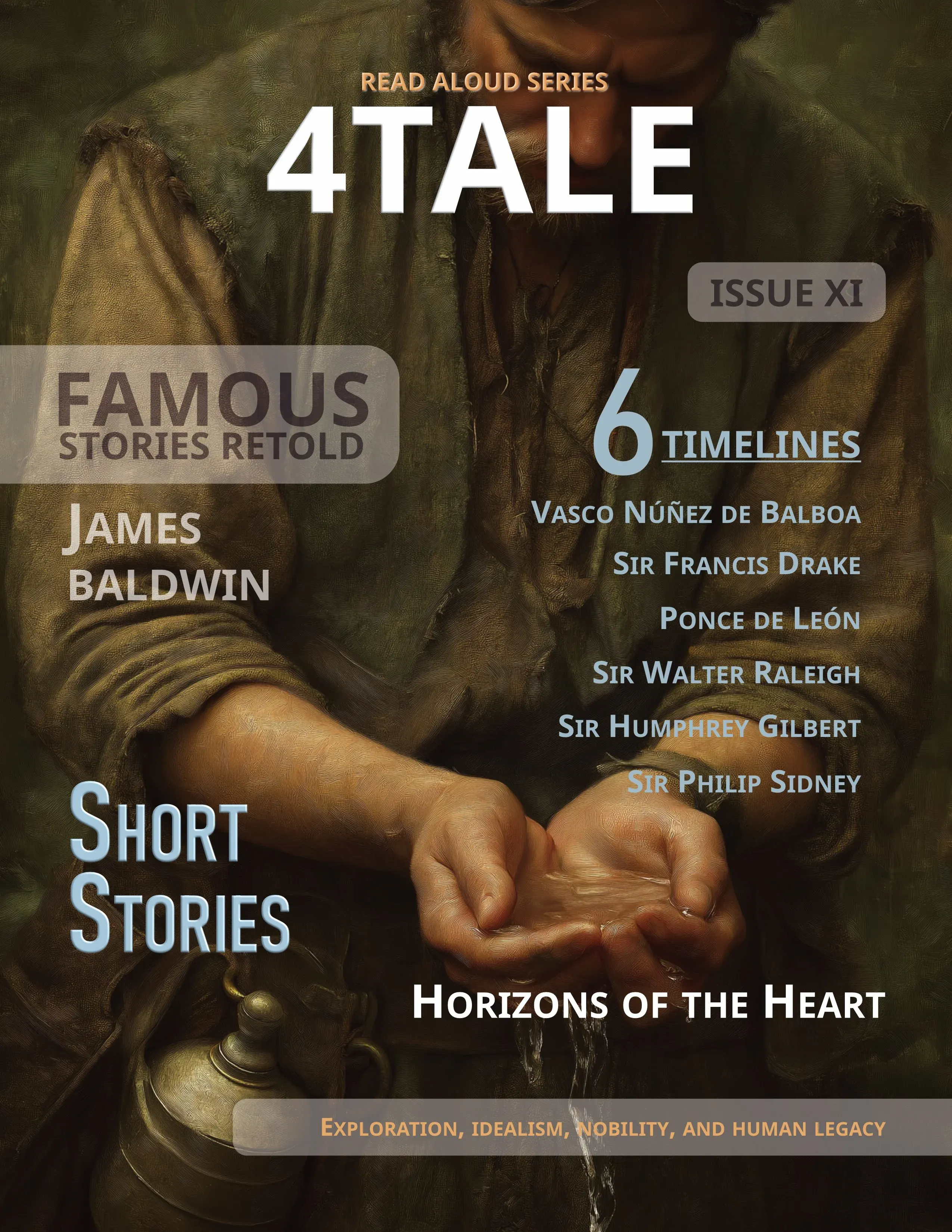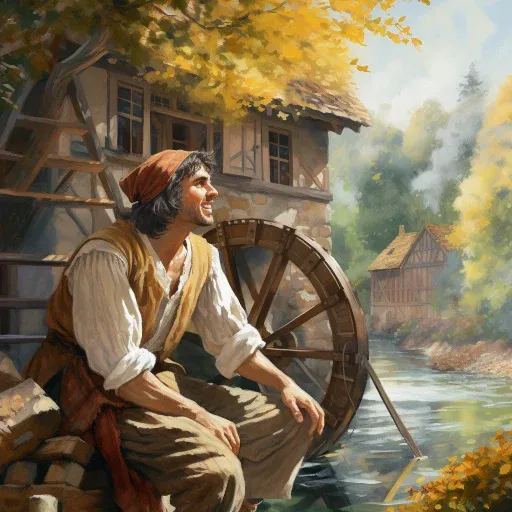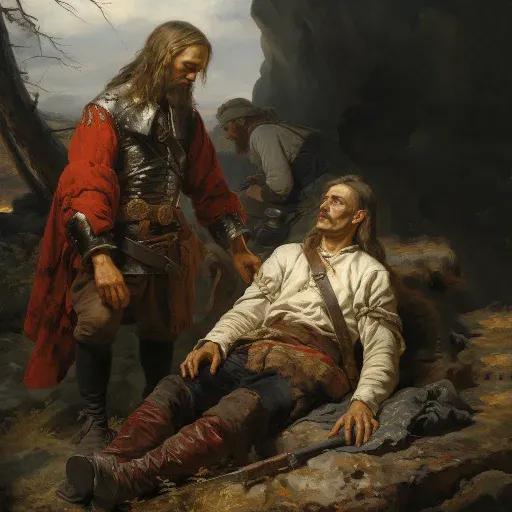
Heading

Selflessness: Despite being wounded and thirsty, he famously gave his water to another dying soldier, showing his selflessness.
National Mourning: His death was deeply mourned by the entire nation, and he was remembered as a model of the ideal Christian gentleman.
A good book we like, we explorers. That is our best amusement, and our best time killer
- Roald Amundsen, Explorer
Sir Philip Sidney: A True Hero's Noble Valor Remembered
In the chaotic theater of war, amidst the blood and dust, emerges the embodiment of true nobility and valor - Sir Philip Sidney. A man whose compassion transcended his own pain, whose heroic deeds etched an indelible mark in the annals of history. This tale not only pays homage to his magnanimous spirit but also unravels the essence of his selfless character that left all in mourning. As we delve into his story, you'll discover the extraordinary nature of this ordinary soldier, forever remembered for his gallant sacrifices.
The Heartrending Battle Scene
In history, there are few scenes as heartrending as the battle where Sir Philip Sidney met his tragic end. The ground was covered with the bodies of the fallen, their lives claimed by the unforgiving cruelty of war. The sun bore down, its merciless heat adding to the torment of the wounded. Amidst this bleak landscape, one man stood out, a nobleman loved by all for his kindness - Sir Philip Sidney. Yet in this moment, he was no better off than the poorest soldier on the battlefield, his fate sealed by a grievous wound.
An Introduction to Sir Philip Sidney
Sir Philip Sidney was not just a nobleman; he was a man of unparalleled gentleness and kindness. His demeanor won him the love and respect of all those who had the privilege of knowing him. Amidst the hardship and horror of war, Sidney maintained his soft-hearted nature, putting others before himself, even in his final moments. His act of selflessness on the battlefield, giving away his last drink of water to a fellow soldier, is a testament to his magnanimity.
Podcast
The Wound that Sealed His Fate
The wounds sustained by Sidney in the battle were fatal. Despite the immense pain he suffered, he did not let his circumstances deter his spirit. When offered a cup of water to quench his thirst, his thoughts were not for himself but for another dying soldier lying close by. With his last ounce of strength, he requested for the water to be given to the fellow soldier, stating, "Thy need is greater than mine." It was this act of self-sacrifice that touched the hearts of many, solidifying his reputation as a hero.
A Testament of Selfless Valor
In the face of imminent death, Sir Philip Sidney exemplified a valor that transcended the norms of self-preservation. His selfless act of offering the life-saving water to a fellow soldier, despite his own dire need, is a testament to his noble character. His understanding of the pain and suffering of others, even in his last moments, paints a picture of a man who placed the welfare of others above his own. Sir Philip Sidney's actions on the battlefield were not merely acts of physical courage but expressions of a deep and abiding compassion for his fellow man. His selfless valor continues to be a beacon of inspiration, reminding us of the potential of humanity in its highest form.

The Legacy of Sir Philip Sidney
Sir Philip Sidney left a legacy that extends far beyond his military exploits. His life and actions have been etched into the annals of history as exemplary demonstrations of nobility, bravery, and self-sacrifice. His story has been immortalized, not just for his role as a soldier, but for his embodiment of Christian values and his unfaltering commitment to the service of others. His legacy, therefore, is not merely one of a military hero, but of a virtuous man who lived his life as a testament to the power of selflessness and love. The memory of Sir Philip Sidney continues to inspire generations, serving as a reminder of the nobility that can exist within us all.
The Mourning of a Nation
The death of Sir Philip Sidney was a blow that resonated throughout the nation. His loss was felt by all, irrespective of their social standing. The rich and the poor, the high and the low - everyone mourned the passing of this man who had given so much of himself to others. His funeral was a testament to the impact he had on the people of his time. Eyes welled up with tears, reflecting the collective grief of a nation mourning the loss of a true hero. The depth of this grief serves to underscore the profound impact that Sir Philip Sidney had on his nation, a reflection of the love and respect he had earned through his life of selfless service.
Conclusion
In history, few figures stand as tall as Sir Philip Sidney. His dying act, a testament of selfless valor, encapsulates his noble spirit. In the face of death, he exemplified the highest form of humanity, placing the needs of others above his own. A nation wept, mourning the loss of a true hero. His legacy persists, an immortal beacon of heroism, a testament to the extraordinary nature of an ordinary soldier. Sir Philip Sidney, forever remembered, forever revered. His name is synonymous with bravery; his deeds, a standard for nobility.





